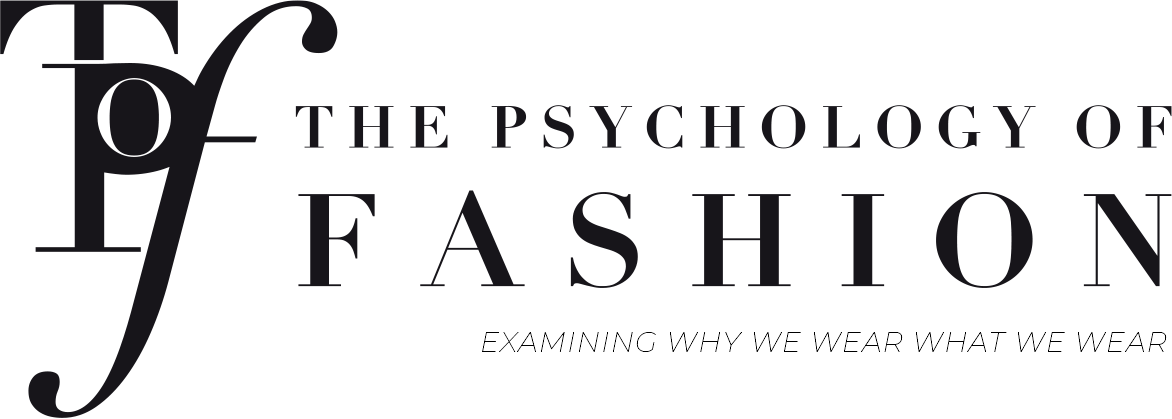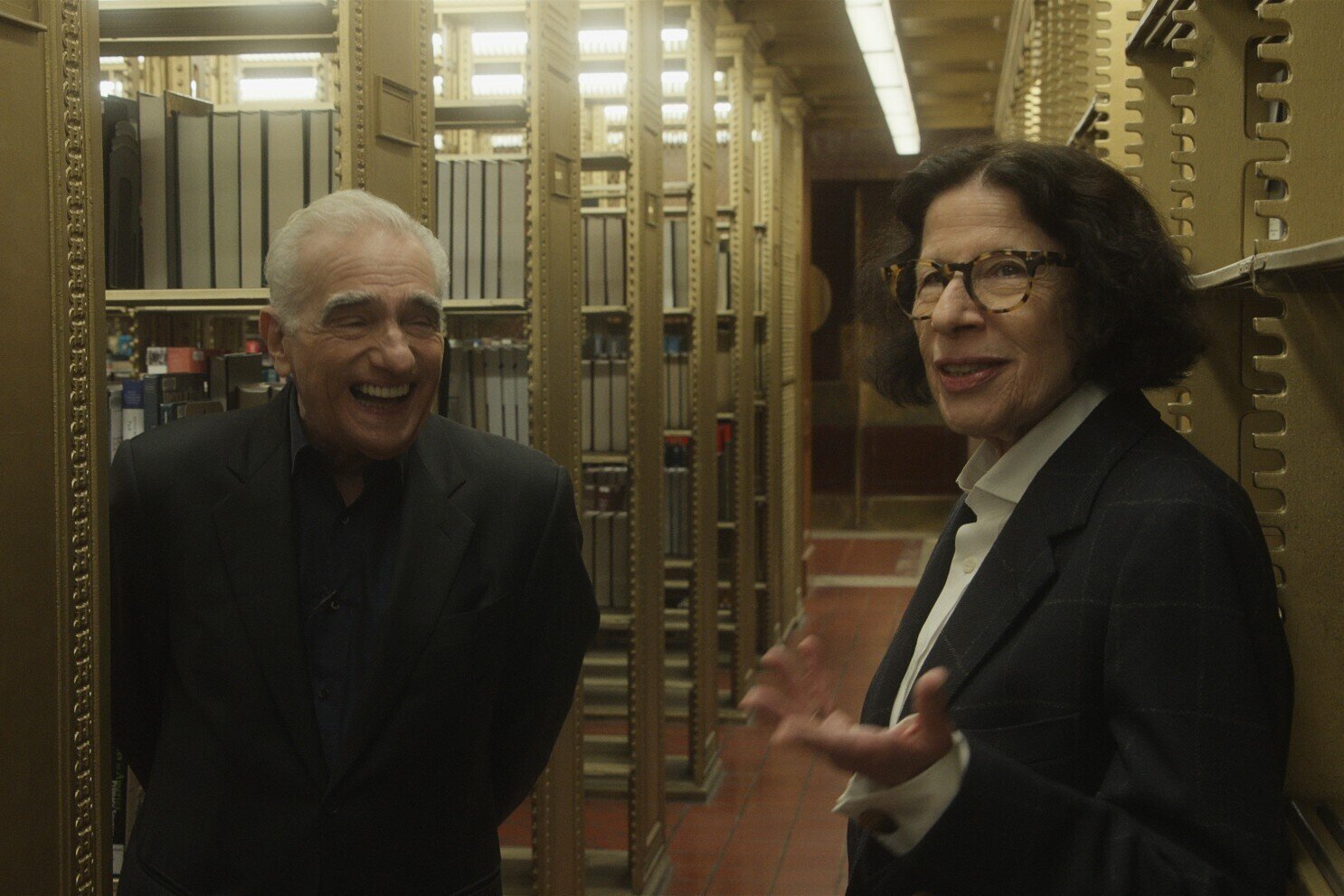New York, as portrayed in the Netflix documentary Pretend It’s A City, is not unlike its protagonist, writer and Manhattan socialite Fran Lebowitz – unapologetic, brazen, timeless and leaves you longing for more. The 7-part Martin Scorscese documentary is an ode to Lebowitz, and the city, in all of its complex, gritty glory.
Lebowitz, who began her career writing for friend Andy Warhol’s Interview, is a woman defined by her sardonic philosophy, satire and signature intellectual style. Here, using fashion psychology, we pay homage to this truly unique woman as we put her through the framework of The Big 5 Personality Test. This test is also referred to by the acronym OCEAN (Openness, Conscientiousness, Extroversion, Agreeableness, Neuroticism) and is the most commonly accepted tool for understanding personality in the field of psychology.
OPENNESS: Moderate-High
Andy Warhol and Lebwoitz in New York’s glory days. (Photo: Netflix)
Openness is a trait associated with embracing new experiences and change. A true contrarian from a young age, Pretend It’s A City gives us some insight into what it was like growing up in a small split-level house in New Jersey. Lebowitz describes having an epiphany at the age of 12 that she didn’t belong, noting New York as one of few places she could go to be herself, particularly as an openly homosexual woman. What’s more, Lebowitz’s love of the NY art scene, notably music and visual arts, plays a huge part in her life and feature heavily in her conversations with Scorsese. On schooling the former Mayor of New York, Michael Bloomberg on his anti-smoking law which directly impacted Lebowitz’s ability to schmooze with the who’s who of the NY arts scene, Lebowitz says “There is a lot to be said for being in physical contact with other artists...hanging around is important...Do you know what artists sitting around, in bars and in restaurants, talking and drinking and smoking is called?...It’s the history of art.” Artistic pastimes are often associated with those who score highly for openness.
Sartorially, Lebowitz doesn’t stray from what she knows – oversized coats, tailored shirts, cufflinks, Levis and tortoiseshell spectacles have epitomized her style. But she has broken the mould in more ways than one. Her deliberately masculine style choices were a stark contrast to the societal expectations of femininity, and to this day remain wonderfully individual.
CONSCIENTOUSNESS: High
Fran’s signature look says she means business. (Photo: Getty Images)
In the documentary, Lebowitz proclaims that “making distinctions and judging, is my profession”. To do so achieving such status takes an incredibly high level of conscientiousness. Lebowitz has grit, is highly principled, disciplined and is notoriously inflexible. Fortunately, she does it with wit and humour that many love her for. This plays out in her never-changing wardrobe, showing a dislike for experimentation and a penchant for tradition via formal classics (tailoring, suit jackets) with stiff, turned up denim and purposely oversized coats that envelop, providing her otherwise small frame with the extra weight to carry her opinions.
EXTROVERSION: Moderate-Low
(Photo: Jason Frank Rothenberg via The Wall Street Journal)
Lebowitz straddles the traits of both extroversion and introversion. Despite dazzling us in the public eye with her often divisive opinions, and revered for mixing with the who’s who of the New York art scene (she was a regular at Studio 54), glory-hunting and peacocking is not Lebowitz’s style. Leaning towards introversion with fierce independence, she actively keeps her personal life away from the spotlight. This ties into her signature look including the way she carries herself inwardly, which is certainly more introverted than your average New York socialite. Lebowitz is famously resistant to technology; she has no cell phone or computer. She has openly shown disdain for people, famously saying with her signature satire, “All God's children are not beautiful. Most of God's children are, in fact, barely presentable”.
The polarization of Lebowitz’s ability to share publicly, while existing incognito, comes across in the first episode of Pretend It’s A City, as we see Lebowitz walking through Times Square, past a blown up video of herself, which she does not even look up to acknowledge. Lebowitz sticks to a uniform we have come to know and love, choosing muted tones over color, opting for an overall more quiet and bookish style that contrasts her passionate manner. Basically, her look tells us that she doesn’t care to be liked, nor does she care for your small talk.
AGREEABLENESS: Low
(Photo: Michael Avedon for Curbed.com)
Combative and ever-willing to air her thoughts, Lebowitz has earned her living from her disagreeableness. When asked by Scorscese if she tends to look down at people, she answers, “only when it's related to whether someone agrees with me or not...I have no power but I’m filled with opinions”.
Someone low on agreeableness typically dresses against the grain of societal expectation. Considering the time at which Lebowitz became known for her uniform, the lack of femininity and color, paired with cowboy boots and chunky gold accents were certainly bold. To this day her style remains truly unique – Lebowitz's dedication to her uniform over the decades alludes to a stubbornness, familiar to those who score low in this trait.
NEUROTICISM: High
(Photo: The Journal News)
What’s especially notable in this intimate documentary, is that Lebowitz is visibly frenetic, wound up and anxious about the daily happenings of life – traits indicative of high levels of neuroticism. Her attention to detail when it comes to reciting the almost daily run-ins with the dangers of modern life correlate with neurotic style tendencies, never to have any detail lacking. As expected, she is often compared to another famously neurotic New Yorker, Woody Allen, whose characters are often severe hypochondriacs. (Since, the trope has given birth to other characters that capture the ever-worried Manhannite, such as George Costanza, and Carrie Bradshaw.)
On Lebowitz, perfectly crisp shirts, pressed jeans, polished accessories, bold, dark statement coats and that curiously yet consistently untamed hair, recall the stereotype of the tortured artist.
To experience New York through the eyes of Fran Lebowitz and the lens of Martin Scorscese is to experience the city in its bare, naked glory – warts and all. Pretend It’s a City triumphs in its ability to take you back to a pre-pandemic metropolis, minus the rose-tinted glasses. It leaves you with a spring in your step and confidence that you could only hope to mirror from a true New Yorker such as Lebowitz.
Curious about your own Big 5 personality scores? Take the test on PSYKHE.
















We use the ‘Driver’s License’ singer’s sartorial style to infer where she would score on the Big Five Personality test.